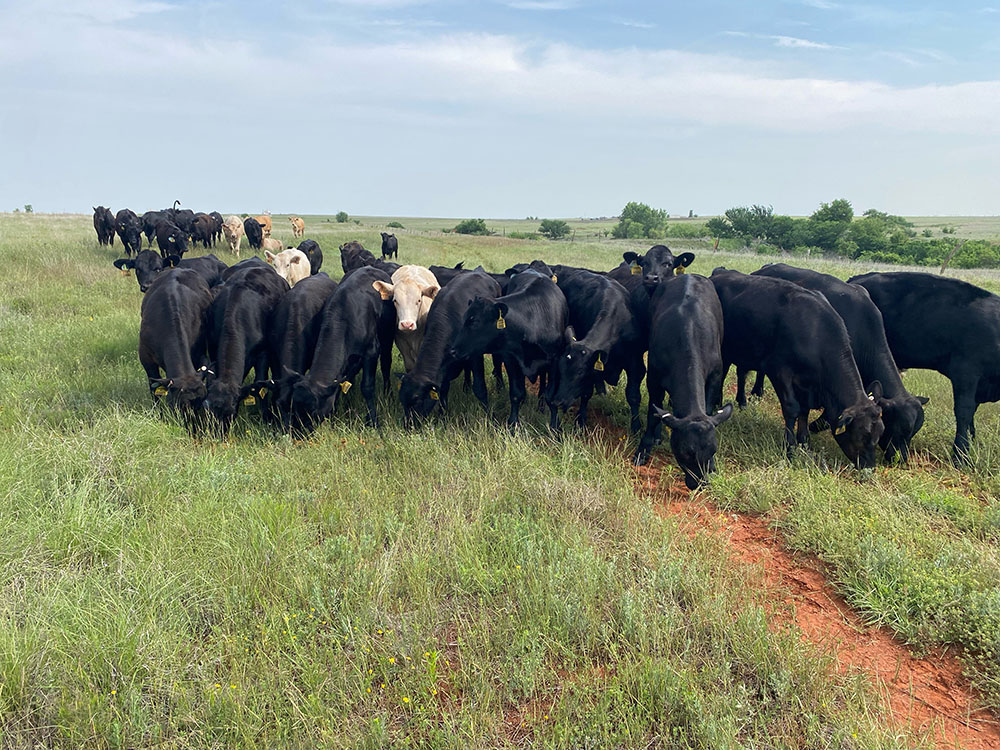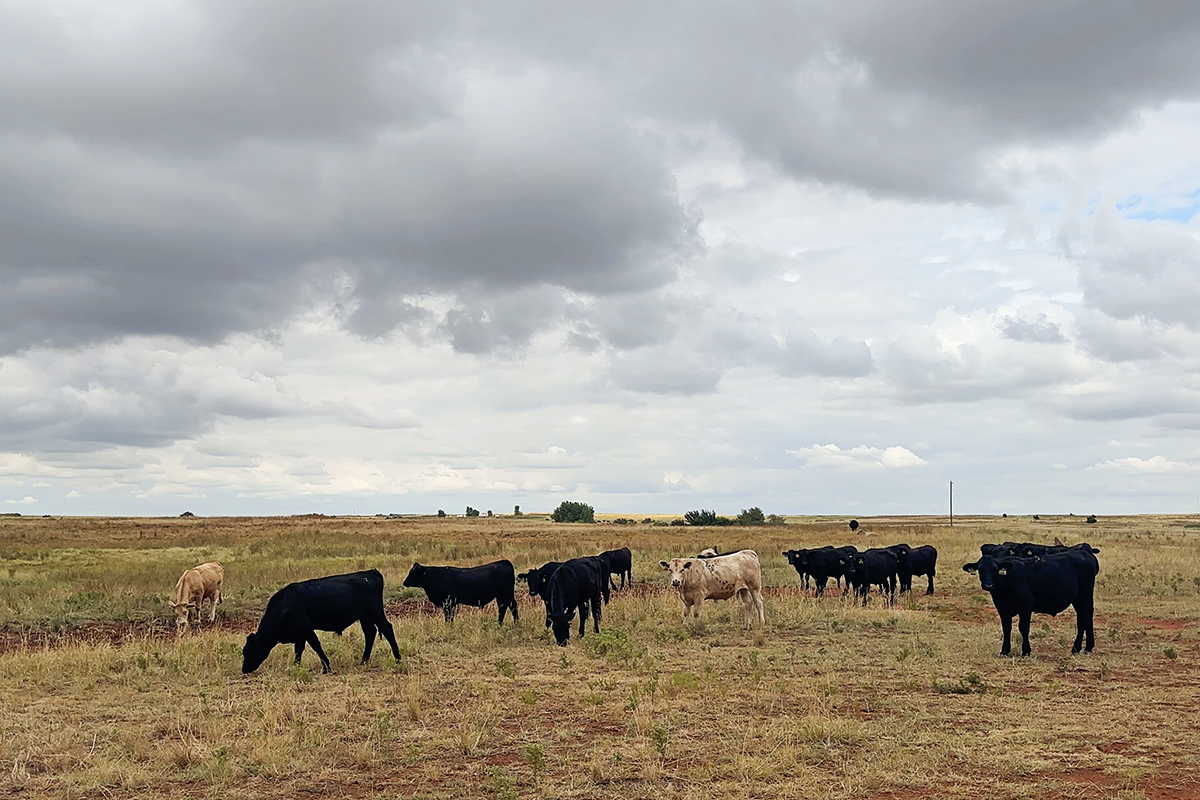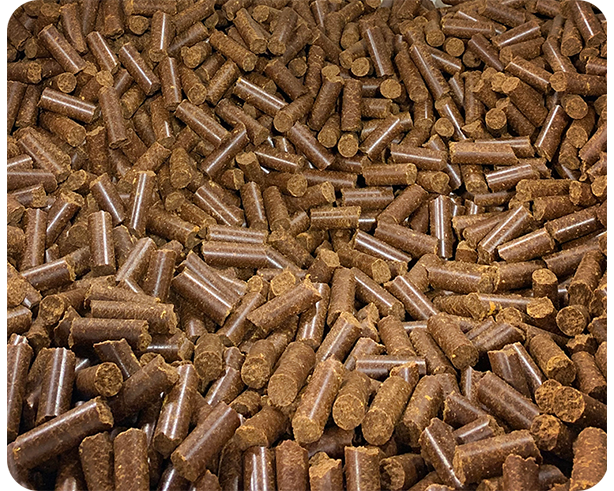Ally Grote is a second year Ph.D. student at Oklahoma State University working on the latest in a five-year run of research trials with MasterHand Milling.
Now in their fifth year of partnership, MasterHand Milling (MHM) and Oklahoma State University continue to push the envelope in studying beef cattle nutrition. In a recent sit-down, MHM owner Dusty turner and Ph.D. student Ally Grote discussed the current trial examining the grazing and finishing potential of dairy-cross cattle compared to native beef cattle.
Ally’s academic journey began at Murray State in Kentucky and continued at the University of Arkansas. But it was the opportunity to work under OSU’s Dr. Paul Beck that truly ignited her passion and pulled her to Oklahoma.
“I got the opportunity last August to come out here and start under Dr. Beck doing this kind of research,” Ally shared. Dr. Beck has spearheaded the trials conducted with MHM since 2019, all focused on utilizing MHM’s extruded distillers grain range cubes for cattle on grass.
“We started off this summer with 75 native beef steers and 75 dairy beef crossbred steers,” Ally explained. Cattle were comingled into three groups, each grazing on different pastures around the Klemme Range. All cattle were fed one pound per head per day of MHM’s range cubes during the first 53 days of the summer and 2.5 pounds per head per day in the last 91 days for a total grazing period of 144 days.

“The primary goal of the trial is to evaluate the ability of a dairy-cross calf to be grown more like a traditional beef calf, using a grazing period to capitalize on least-cost growth,” Turner said. “These dairy calves are typically taken straight from the calf huts to a grow yard and then the feed yard. We want to see if we can use DDG cubes on grass to more efficiently and cost-effectively grow that calf and potentially improve feedlot performance as well.”
Reflecting on the progress so far, Ally noted that while the difference between the native beef calves and dairy beef calves was initially very pronounced, things changed as the summer rolled on.
“At the start of this study, there was an obvious difference between the native beef calves and the dairy beef calves. But as the summer progressed, as we have upped their supplementation, I have a hard time determining the two apart without looking at their tags,” she remarked.

Delving into the numbers, the data paints a comprehensive picture:
For the native cattle:
- During the first 53 days, when fed 1 lb/hd/day, had an average daily gain of 1.39 lbs per day.
- In the last 91 days, when fed 2.5 lbs/hd/day, gain averaged 1.91 lbs per day.
- Overall, across the full season, the average daily gain (ADG) was 1.72 lbs.
In contrast, the dairy cross steers:
- Showed an ADG of 0.38 lbs in the first 53 days with 1 lb/hd/day feed.
- Gained 1.75 lbs on average in the second 91 days, fed 2.5 lbs/hd/day.
- Across the entire season, the ADG was 1.24 lbs.
Apart from growth, the economic aspects were also highlighted. With an average feed cost of $455 per ton, daily feed and grass costs were $0.44 and $0.75 respectively. The overall cost per day amounted to $1.19. Cost of gain (COG) for native cattle came in at $0.69, with the dairy beef steers at of $0.96 per day.
All cattle were weighed and shipped in mid-October to be finished at Buffalo Feeders in Buffalo, OK. The research will continue to track the steers’ growth and performance through the feedyard, as well as collecting carcass and ultrasound data. Comparisons will be made between the native and dairy-cross calves in the grazing trial, as well as against littermates that were not grazed as part of the study and are already on feed.
Time will tell the impact of the DDG cubes on both sets of cattle, and Ally and team are looking forward to seeing the data. Ally hopes to be able to utilize this and future research in her eventual career either on the family farm or with a feedlot or feed company.
“I want to apply what I’m learning and help farmers and ranchers better their operations,” she said.


